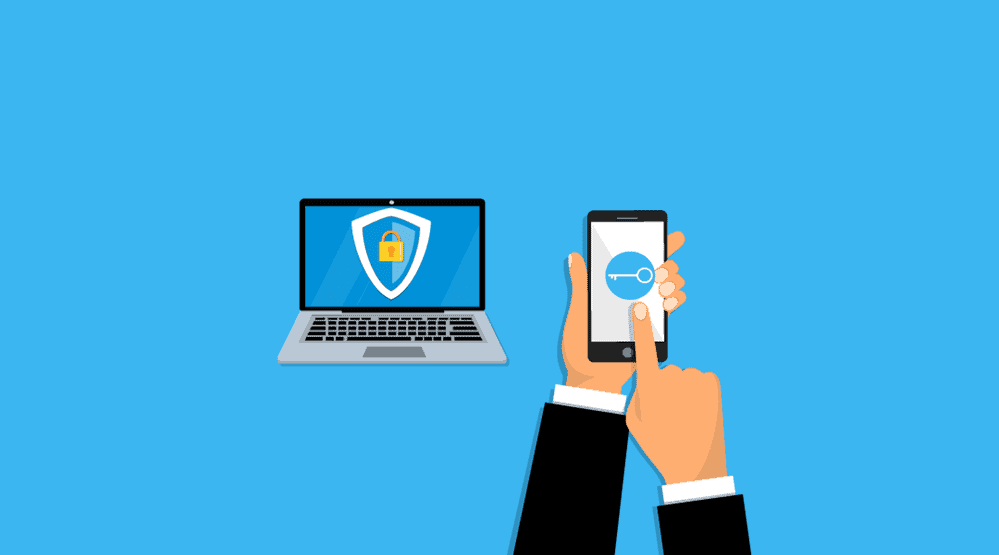What is a Multi-Factor Authentication (MFA)
Nowadays, remote and hybrid work is becoming more common in workspaces. Many people have found that occasionally working from home increases their productivity and motivates them to do and achieve better. For this reason, companies have started to upload and store confidential data on cloud spaces, alongside communicating with their partners and customers through online platforms such as Outlook Web. This transformation has made it easier for employees to access all that they need from wherever they are. However, it has increased the chances of cyber attacks from third parties.
Companies that have started to store data online became aware of the possibility of getting hacked. Thus, they tried to seek ways to add layers to their security since a username and password were not enough.
A multi-factor authentication (MFA) is a service that adds extra protection to cloud storage, a communication platform, and even a virtual private network (VPN).
What Cisco Anyconnect is used for by businesses
Protecting online communication platforms and cloud spaces can secure only those accounts. For many businesses, using a virtual private network, like Cisco VPN, should be a priority in offices since it provides an encrypted firewall between devices, making it difficult for hackers to access company accounts. For instance, if a company has added Cisco Anyconnect MFA on their VPN, they will have reduced the chances of getting threatened by different types of cyber attacks, decreasing the vulnerability of their corporate internet access.
Why businesses should secure Cisco Anyconnect using an MFA application
Installing and using a VPN is not enough to secure the internet access of a company. Many companies believe connecting to a VPN application will secure everything within their network. However, numerous types of cyber-attacks will still be a threat to these businesses. For example, phishing happens when employees fall into the trap of signing in to their company accounts using a link or a brute force attack, where hackers try to guess passwords based on numerous tries logging in.
Therefore, companies should look into creating a barrier between outsiders and their companies by adding multi-factor authentication on their VPN applications. Here’s a brief guide on how to install and protect a corporate network.
How does MFA secure a Cisco VPN account?
1. Install and set up the MFA application
Installing an MFA application should not be done quickly. Managers need to put in some time in the research process to test the application and see whether it applies to the VPN they are using or if employees find it user-friendly without any complications.
2. Try to log in to the Cisco Anyconnect account using a username and password
After the installation, the MFA application should be connected to the VPN provider. A company admin account should be created to allow access to employees. By using the admin username and password, managers should try to connect their VPN application to their corporate network.
3. Select the type of authentication to access an account
The first time the username and password are entered into the VPN application, employees must choose an authentication method they would like to use when they sign in. The method will be requested from employees by the MFA provider whenever they try to access their accounts.
Numerous types of authentication are offered nowadays, like fingerprint scans, face recognition, and one-time codes sent to a mobile phone.
4. Verify the login from your mobile phone or desktop
Now a verification request will be sent to the employee by the authentication method they have chosen. This step is crucial for the MFA provider because it allows it to identify the person trying to access a network.
5. Get access to the account and ensure that no one other than you can access your Cisco account
If the person is able to provide proof of their identity by the required extra authentication for the verification, the MFA will grant them access to the corporate network.
This way, a corporate network will be secured from outsiders and cyber attacks.
Conclusion
An MFA application has become necessary for businesses, especially for their virtual private networks (VPN). The Cisco Anyconnect MFA will provide an extra layer of security to corporate networks, reducing the threat of hackers getting inside a corporate network and accessing all confidential data.
- 10GbVPS Review – Review Their VPS Hosting Services (2024) - June 1, 2024
- BlueServers Review – Unbiased Look at Their Dedicated Hosting Services (2024) - June 1, 2024
- 10 Best Programming Languages For Web Development - February 27, 2024

